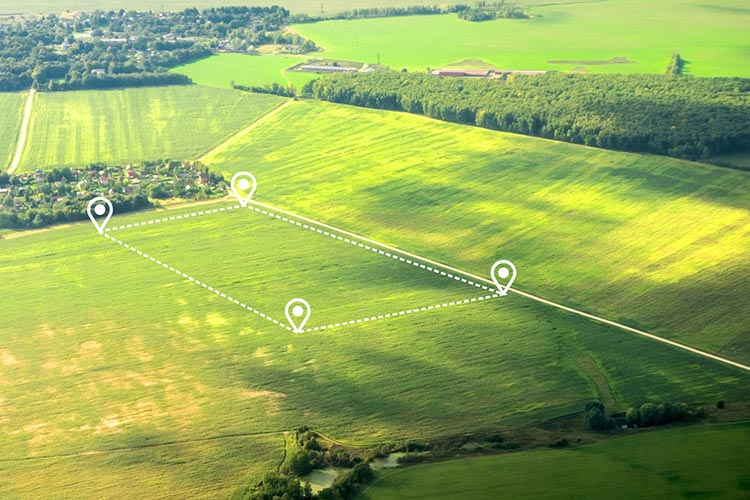
Raw land is vacant, unimproved land. Typically, people might buy raw land to use it personally or pursue income. As with many real estate assets, raw land may increase in value (or may not), and the potential for profit is a frequent motivation for buying. Typically, raw land has no improvements, lacking utilities and buildings.
Why buy raw land?
You may buy raw land to build something on the property. Depending on the parcel’s size and location, your aspirations could vary from a small getaway cabin for personal use to a massive multifamily housing development or another commercial project.
Depending on the circumstances, your raw land might be worth more to someone else than it is to you, in which case you may want to sell it. This scenario may be the simplest method of making money with raw land since you could sell it just as you bought it—with no improvements.
Location, location, location.
Whether you can sell the property and how much you can gain on the sale will likely depend partly on the location. For example, if you buy rural property, it is hard to estimate whether demand will increase. On the other hand, if you happen to buy a parcel of raw land in an area that hits a popularity surge, you may hit the jackpot.
Suppose you have a large property next to a new highway extension. Your land might be in great demand for fueling, eating establishments, and other needed services. Similarly, if you own a piece of land at the edge of a growing city, your land may be required for housing construction. In these situations, you might benefit from an unexpected surge in demand.
On the other hand, if you buy property next to a planned development in the hope that the construction project will cause a spike in value for your asset, you may be disappointed if the planned development is canceled or delayed.
Does raw land qualify for a 1031 exchange?
Investors may use a 1031 exchange to buy or sell raw land, as they can with any other real estate transaction. A 1031 exchange transaction can benefit investors by allowing you to defer the capital gains taxes that would be due on the sale of your property—if you reinvest the entire proceeds into qualifying replacement assets.
Suppose you own raw land and want to invest in something else. In that case, the land will be eligible as a like-kind exchange for other investment properties, including commercial buildings, residential rentals, farmland, or alternate raw land sites. However, suppose you want to purchase raw land and build on it. In that case, the 1031 exchange proceeds from the relinquished property must either be directed to the land purchase or to improvements completed within the 1031 exchange period to qualify for deferral.
How do I depreciate raw land?
The IRS allows investors to take a deduction for the depreciation of assets used for the investment. Depreciation is an accounting function that spreads the process of asset value reduction over a standard period. However, depreciation only applies to improvements like buildings, not to undeveloped land. Therefore, you may have other deductions available as a raw land investor, but not depreciation.
This material is for general information and educational purposes only. Information is based on data gathered from what we believe are reliable sources. It is not guaranteed as to accuracy, does not purport to be complete and is not intended to be used as a primary basis for investment decisions. It should also not be construed as advice meeting the particular investment needs of any investor.
Realized does not provide tax or legal advice. This material is not a substitute for seeking the advice of a qualified professional for your individual situation.
All real estate investments have the potential to lose value during the life of the investment. All financed real estate investments have the potential for foreclosure.
The income stream and depreciation schedule for any investment property may affect the property owner’s income bracket and/or tax status. An unfavorable tax ruling may cancel deferral of capital gains and result in immediate tax liabilities.
Costs associated with a 1031 transaction may impact investor’s returns and may outweigh the tax benefits. An unfavorable tax ruling may cancel deferral of capital gains and result in immediate tax liabilities.



